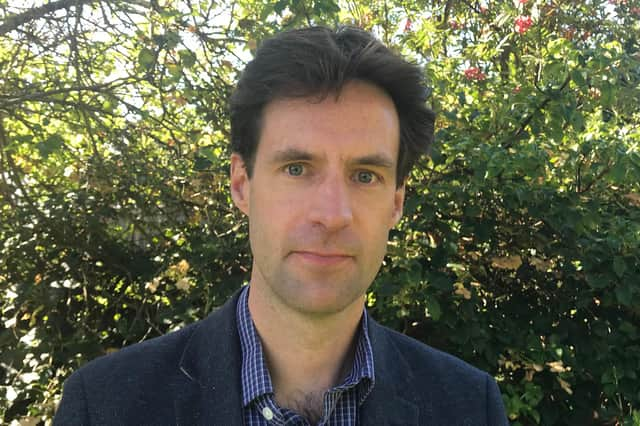Carbon and natural capital assets should be shared by whole nation


Commenting on the rapidly developing sector, which is currently having a major influence on the land market and land use decisions in Scotland, the Scottish Land Commission yesterday said that it was crucial that communities and local economies benefited and shared in this value.
Speaking ahead of a major conference set to look at how these markets should be developed, the chief executive of the country’s land reform body, Hamish Trench, said that If carbon and natural capital values grew, as those currently buying early anticipated, then it was reasonable that increases in value from what was a shared national resource should create public as well as private benefit.
Advertisement
Hide AdAdvertisement
Hide AdTrench said that Scotland had a big opportunity in using its land to drive a just transition to a net zero economy and that new value and investment associated with carbon and natural capital could bring significant benefits if harnessed well.
He said that the land commission was currently working to understand the effect of carbon and natural capital in the land market in order to advise Scottish Government and the sector on the risks, opportunities and steps needed to ensure the market worked in the public interest.
“The fast growth of new carbon and natural capital markets raises some fundamental questions for how land is owned and used, who owns and benefits from carbon rights and natural capital and how land is bought and sold,” he said.
But, conceding that the interest in the markets for carbon and natural capital were being driven in part by socially responsible investment from organisations seeking to be increasingly climate positive, he said that others were being attracted by the prospect of trading carbon credits and anticipated future value.
Stating that Scotland was well positioned by virtue of its geography to operate in the market, he stressed that it was important to create a win/win situation where both the country’s economy and nature shared in the benefits.
“This brings both risks and opportunities, it’s going to be important that national and local economies and communities benefit from changes and the increasing value of the land. This is the right time to be shaping these markets in the public interest.”
He added that on a more immediate note, those buying land now for carbon, just as for any other motivation, should understand that with rights in land went responsibilities.
“There is a clear framework in Scotland setting out these expectations in the Land Rights and Responsibilities Statement and the Land Commission’s Good Practice Protocols that support its practical implementation,” said Trench, who added that those looking to invest or attract investment should also consider responsible governance that engaged communities in both decision making and benefit.
Natural Capital is a headline topic at the upcoming Land Commission conference from October 4-6.
Comments
Want to join the conversation? Please or to comment on this article.